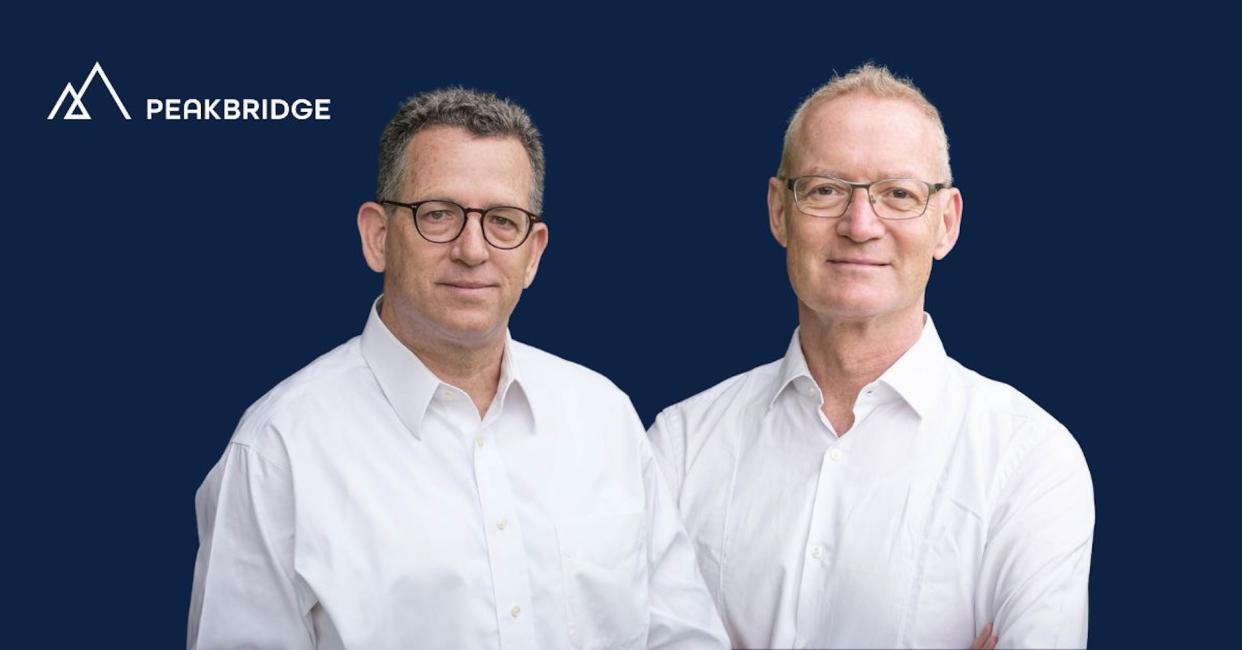Food VC PeakBridge has new $187M fund to transform future of food, like lab-made cocoa

Climate change is not just about removing carbon from the atmosphere or making more fuel-efficient cars. It’s also about the food we eat.
That’s the focus of PeakBridge, a global fund manager in the agri-food tech sector. It recently closed on $187 million in capital commitments for its PeakBridge Growth Fund II to invest in innovation in those areas. That brings the firm’s total assets under management to over $250 million.
PeakBridge, based in Luxembourg, is a member of the Edmond de Rothschild Private Equity partnership. The firm was started by founding general partners Erich Sieber and Nadav Berger in 2020.
"We want to be 'the bridge' helping those entrepreneurs to get to the 'peak,'" Berger told TechCrunch. "We also can serve as a bridge between the old food industry and the new technology. We’ve also started to invest in AI and food, and now we have at least five companies using AI."
Climate change is one focus for the firm, and the partners knew they couldn't tackle the climate challenge without addressing food. When they were raising the new fund, they had no trouble convincing larger institutional investors of the need.
The most recent fund exceeded the $100 million target size announced in 2022. Growth Fund II was launched with participation from global food and beverage companies, including Grupo Bimbo, Royal Cosun and Arancia, as well as financial institutions, including Builders Initiative.
In terms of returns, partner Nadim El Khazen told TechCrunch that PeakBridge's funds are just starting to see early results but those results are promising.
PeakBridge intends to invest in between 16 and 20 companies, at around $10 million in each company. It has made eight investments so far. These include companies like animal-free dairy startup Standing Ovation and Vow, which has done some interesting cultured meat products, including more exotic meats.
"We started investing in 2020, so we're currently working on the first exits from our funds," El Khazen said. "Unlike conventional VC and software or in biotech, it's not one or two companies that return the fund multiple times. Instead, what we see in our portfolio is that a majority of companies would return, say, two to five times the investment."
The investor adds that its portfolio has "less failures" compared to the classic expectations of, say, a SaaS and software fund. "Where we see our returns are: between two to four times per fund. This is where our portfolios are trading today."
Among the new food products that Sieber and Berger believe could be really world-changing is lab-made chocolate.
One of their investments from the fund is in Win-Win. Sieber explained it's a cacao replacement that is taking advantage of the huge spike in cacao prices. Though prices have come down a tad, the price of cacao per metric ton hit nearly $11,800 earlier this year due to heavy rains and disease affecting crops.
"One of the topics we think about is climate change, which will have more and more disruptions in commodities," Sieber said. "We saw it with coffee and vanilla. Right now, cacao is at an all-time high, and we are seeing a real impact on the consumer. Win-Win and three or four other companies are trying to produce something very similar to cacao with the same texture and color naturally."
Despite chocolate being a favorite snack, the cacao industry is well-known for child labor and deforestation issues. Some companies, like Ayana Bio, which works on high polyphenol cacao extracts, have pledged to accelerate the production of cacao bioactives through cellular cultivation.
Other companies are also playing here. Planet A Foods, which raised $15.4 million earlier in 2024, continues to develop a sustainable alternative to cocoa. True Essence Food secured $27.6 million in Series B funding in late 2023 for its flavor symmetry technology, which uses dehydration as a technique to capture flavor, aroma, and nutrition. It is applying that to chocolate. Companies like California Cultured and Voyage Foods are making cocoa-free chocolate products. Voyage just raised $52 million last week.
"What's interesting is that the big chocolate companies are, because of the price of cacao, replacing it with sugar," El Khazen said. "Now even sugar has also quite significantly increased in terms of prices as a commodity. There's no way around basically applying inflation to the product. This is why we think using solid-state fermentation can be a nice way, and an elegant way, to solve for these predicaments."


